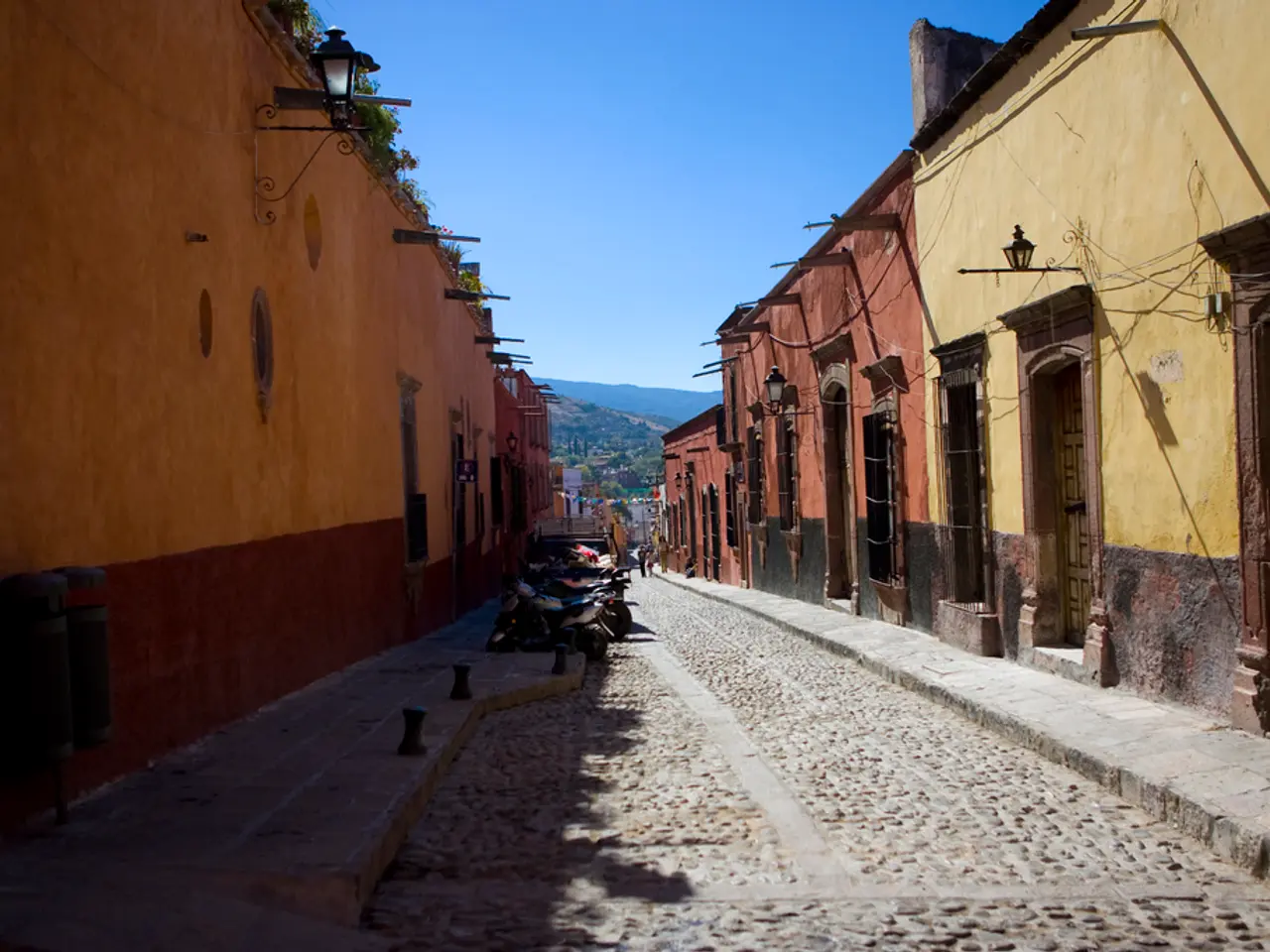Conflict in the West Bank: Unspoken Battle
The E1 settlement project in the West Bank is moving closer to construction, with the Israeli civil administration's Higher Planning Council set to discuss approval for about 3,401 housing units in the E1 area on August 20, 2025.
The project, located adjacent to the Ma’aleh Adumim settlement, has been a subject of controversy due to its potential impact on the region. The international community widely regards the E1 project as illegal under international law, as it involves settlement construction in occupied territory and is seen as a major obstacle to the viability of a future Palestinian state and the two-state solution.
The project threatens to split the West Bank, disrupting territorial contiguity by physically preventing a continuous metropolitan area connecting Ramallah, East Jerusalem, and Bethlehem—key Palestinian population centers.
Israeli officials, including Finance Minister Bezalel Smotrich, have supported the plan, asserting it strengthens Israel’s sovereignty and connection between Ma’aleh Adumim and Jerusalem. However, the plan has been condemned by regional actors and peace organizations, who warn it dooms the prospects of peace and will prolong conflict and bloodshed.
The E1 project's current status is at the final stages of approval and set for near-future construction. The implications of this development are profound, as it undermines territorial contiguity crucial for Palestinian statehood and fuels tensions and conflict.
In addition to the E1 project, other developments in the West Bank are causing concern. For instance, the mayor of Ma'aleh Adumim has proposed erecting a fence that could potentially cut off dozens of Bedouin communities from the rest of the West Bank.
The West Bank is now being referred to as "historic Israel" in a parliamentary session, and the "Highway of Life" and "Sovereignty Road" named multi-lane routes are already under construction and will only be allowed to be used by Jewish Israelis.
These developments come at a time when the Israeli Security Cabinet has resolved on five war objectives for Gaza, including disarming Hamas, securing the return of all living and deceased hostages, demilitarizing the entire Gaza Strip, establishing a civilian administration without Hamas influence, and implementing permanent Israeli security control.
Palestinian activist Issa Amro has called for concrete support from foreign diplomats to prevent the idea of a Palestinian state from remaining just a symbol. Meanwhile, more than 30 Palestinians have been taken into preventive detention on the E1 area in recent days, which can last up to six months.
The routes accessible to Palestinians between Hebron, Ramallah, and Jerusalem remain unclear, with Palestinians not allowed to use the settlers' roads. A new North-South route is needed for them to navigate the region.
In summary, the advancement of the E1 settlement project and other developments in the West Bank are causing significant international concern. The potential impact on Palestinian statehood, territorial contiguity, and the prospects of peace cannot be overstated.
- The advancement of the E1 settlement project, which is located adjacent to the Ma'aleh Adumim settlement, is a major point of contention in the politics of war-and-conflicts and general news due to its potential impact on Palestinian statehood and the prospects of peace.
- The international community widely perceives the E1 project, and other developments in the West Bank such as the construction of multi-lane routes and the proposal of fencing off Bedouin communities, as major obstacles to the viability of a future Palestinian state and the two-state solution.





